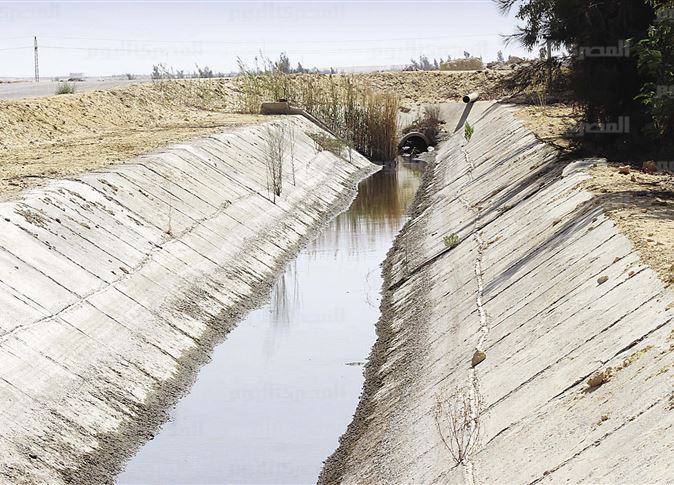
After living abroad for 40 years, Mohamed Fouda returned to Egypt in 2005 to invest in the reclamation of 1,000 acres east of the Suez Canal. He has turned the yellow sand into land that supports trees and crops, the latter which he began exporting in 2010.
This year, however, Fouda lost his entire crop due to a water shortage resulting from the development of the Serapium Culvert.
Fouda was not the only one to suffer from the shortage that lasted for 18 days, as his is one of many farms located in an area of 115,000 acres.

Dried fruit
Along the Nuweiba-Taba highway are farms that produce grapes, citrus fruits, wheat and corn.
But the greenery has turned into yellow again and most fruits have dried up from a lack of irrigation since the water was cut off without warning in June.

Dried fruit
The farms depended on water from the Serapium Culvert that was laid in the 1970s, which used to dispense some 24 cubic meters of Nile water per second to the farms.
When the farmers raised concerns about the issue, the Irrigation Ministry activated the emergency siphons, which only discharge 12 cubic meters of water per second, half the needed quantity.
Farmer Mustafa Abdel Kerim lost 150 acres of corn, which took four months to ripen. He also lost his citrus trees. “The trees need seven years to produce economic quantities for export,” he said.

Dried fruit
Another farmer, Adel Fouda, spent LE6.5 million on 1,000 acres over a period of 10 years. He used to export 2,000 tons of fruits. “All this is gone now,” he said. “And what is left is bad and cannot be sold on the local market.”

Al-Masry Al-Youm reporter speaking to a farmer
Fouda said the water shortage left regular and seasonal workers out of a job. “I used to employ 114 workers. Now I only have 14 workers,” he said. “My foreign partner and I decided to resort to international arbitration after the officials from the Agriculture and Irrigation Ministries ignored our complaints.”
Some farmers installed pipes to raise the groundwater and mix it with fresh water. Others had to dispense with certain crops and concentrate on others that can endure less water.
For his part, Yousry Abdel Hamid of the Ismailia Agriculture Directorate, said it is necessary to develop and extend the culvert under the new Suez Canal in order to provide sufficient water for the whole of the Sinai Peninsula, denying the fact that the farmers were not warned, and attributing the damages to the heat wave.
But Ahmed Fawzy, an irrigation expert at the Desert Research Center, said the damage stemmed from the water shortage and not the heat wave.
Additionally, the complaints filed by the farmers date back to June and July, before the country's August heat wave.
Khaled Madin of the Central Administration of Water Resources said the farmers did not pay the electricity bills, which is why the water was cut off.
The development of the Serapium Culvert stared in September 2014 and is expected to be completed by the end of this year.
Edited translation from Al-Masry Al-Youm
